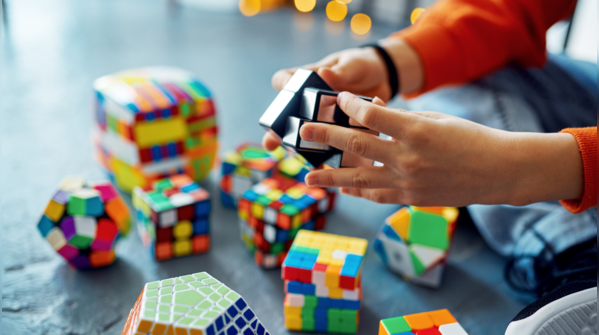In today's fast-paced world, cognitive health is just as crucial as physical well-being. While workouts often take center stage, it's essential to remember that your brain also requires regular exercise. Just as lifting weights strengthens muscles, brain exercises sharpen focus and boost memory. These exercises are vital for maintaining and improving cognitive functions, enhancing concentration, improving memory retention, and potentially preventing age-related cognitive decline.

The importance of meditation for both body and mind is often underestimated. This practice involves focusing the mind and cultivating a state of presence. Meditation strengthens the prefrontal cortex and hippocampus, brain regions vital for attention and memory.
Regular meditation can improve attention span and reduce stress, ultimately supporting better memory function. Some studies suggest that meditation may positively influence brain structure and function, although further research is needed. Dedicate just 10-20 minutes each day to meditation. Find a quiet space, focus on your breath or a mantra, and gently redirect your attention when your mind wanders. Beginners can find helpful guidance through various meditation apps.

Games and puzzles that challenge your brain are excellent tools for improving memory and boosting focus. Puzzles that demand problem-solving skills can strengthen neural connections. Activities like Sudoku, crossword puzzles, and memory card games are linked to short-term memory enhancement and improved cognitive flexibility.
These games effectively train your brain to efficiently process and recall information. A 2021 study revealed that brain training games can be beneficial in managing age-related cognitive decline in older adults. Set aside some time each day, whether morning or evening, for a crossword puzzle, Sudoku, or a memory card game. Numerous online platforms and puzzle books can assist you in this practice.

The brain thrives on novelty. Learning something new, whether it's a language or a musical instrument, forces the brain to process and store new information, creating fresh neural pathways.
A 2014 study involving older adults demonstrated that learning a new and cognitively demanding skill, such as quilting or photography, significantly boosted their memory. Similarly, a 2019 review found that bilingualism, the ability to speak two languages, substantially increases and strengthens the connectivity between different areas of the brain. This, in turn, can delay and decrease the risk of Alzheimer's disease and other forms of dementia. Consider utilizing language training apps, enrolling in a course, or picking up an instrument. Consistent practice, even for just 15-30 minutes daily, can yield remarkable results.

Newer articles
Older articles
 Esha Gupta Sets Record Straight: Actress Addresses Hardik Pandya Dating Rumors
Esha Gupta Sets Record Straight: Actress Addresses Hardik Pandya Dating Rumors
 Google Maps to Boost Navigation Accuracy with Fused Orientation Provider API
Google Maps to Boost Navigation Accuracy with Fused Orientation Provider API
 Global Vaccination Rates Plunge: Millions of Children Now Vulnerable to Preventable Diseases
Global Vaccination Rates Plunge: Millions of Children Now Vulnerable to Preventable Diseases
 Rishabh Pant: Greg Chappell Hails India Star as Cricket Revolutionary
Rishabh Pant: Greg Chappell Hails India Star as Cricket Revolutionary
 Skin Cancer Alert: How to Identify Suspicious Moles and Early Warning Signs
Skin Cancer Alert: How to Identify Suspicious Moles and Early Warning Signs
 Gavaskar Calls for Kuldeep Yadav's Inclusion in Second Test Amid Bumrah Fitness Concerns
Gavaskar Calls for Kuldeep Yadav's Inclusion in Second Test Amid Bumrah Fitness Concerns
 Is Daily Pooping a Must? Understanding Bowel Regularity and When to Worry
Is Daily Pooping a Must? Understanding Bowel Regularity and When to Worry
 Suryakumar Yadav's Sports Hernia: Understanding the Injury, Recovery, and Risk Factors for Athletes
Suryakumar Yadav's Sports Hernia: Understanding the Injury, Recovery, and Risk Factors for Athletes
 Vijay Sethupathi Apologizes Amid Controversy Over Son Surya's Debut Film 'Phoenix' and Alleged Video Removal Pressure
Vijay Sethupathi Apologizes Amid Controversy Over Son Surya's Debut Film 'Phoenix' and Alleged Video Removal Pressure
 Install Baccarat Hack Tool: The Secret to Winning
Install Baccarat Hack Tool: The Secret to Winning